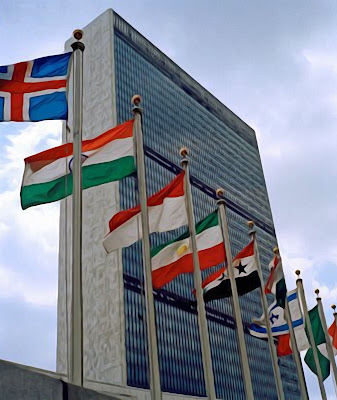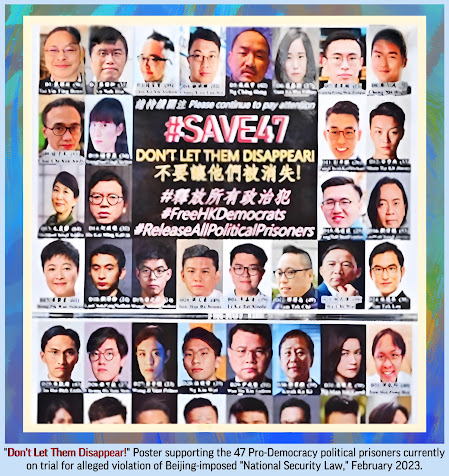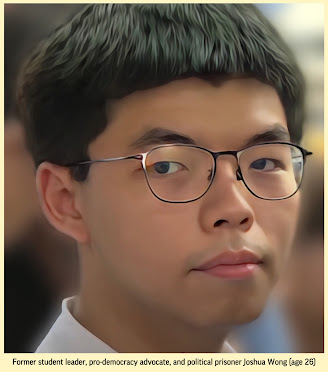It has been a year since the beginning of Russia’s full-scale invasion of Ukraine. It was meant to be a quick and easy conquest of a place that—according to Vladimir Putin and his clique—doesn’t have a right to exist as an independent nation. It was carried out in flagrant disregard of international law and in violation of Ukrainian border guarantees that Russia itself had agreed to in prior treaties. Not that this was really new, since Russia had already violated Ukraine's sovereignty in 2014 by seizing Crimea and was embedded with supposed "independence fighters" in the Donbas region since that time.
Russia expected that what they called their "special military operation" would overthrow the government in Kyiv within a few days. What the Russians did not expect (and, indeed, it surprised the whole world) was that the people of Ukraine were implacably determined to defend themselves and their country. Their opposition soon exposed the flaws and lack of discipline in Russia's armed forces, and established Ukraine as a credible opponent that might be able to hold its ground and even drive the Russians back. Western nations continue to give billions of dollars in military aid to Ukraine in a war that is ongoing, with Russia bogged down trying to hold territorial gains in Eastern Ukraine.
The Kremlin strategy, above all, is founded upon utter contempt for Ukraine's existence as a nation and the Ukrainian claim to be a distinctive people. The Russian armed forces have not hesitated to rain down destruction upon the whole of Ukraine, using drones to bomb civil infrastructure, destroy electric and water supplies, and kill indiscriminately Ukrainian civilians in their homes, schools, and hospitals. The war has caused the greatest European refugee crisis in generations. Eight million Ukrainians have fled the country (that's one-fifth of their entire population) and are refugees in other European nations. Many more have been internally displaced.
Ukraine's armed forces continue—with fierce determination and overwhelming popular support—to defend their country and seek to restore their borders. The rich Western countries continue to cheer for Ukraine with an uncanny unanimity and limitless “pop-culture enthusiasm.” The West has also used its most powerful asset—money—to send Ukraine weapons of various kinds, deliberating and delaying on different systems and details for various reasons.
The war is being reported and analyzed by news media in great detail. What is impossible, however, is to predict the trajectory of its escalation, who may yet become involved, and how (and when) it might finally come to an end. There remains in the West something like a desperate hope that this terrible war can be "contained" as a "local conflict," fought and won by Ukraine using Western “help”—which means spending tons of money to provide Ukrainians with state-of-the-art weapons, training, and whatever other kinds of assistance money can buy and high-profile political visits can generate. According to the “rules of war” none of this “help” makes Western nations co-belligerents in Ukraine’s war against Russia’s barbaric and criminal aggression. It is hoped that preserving this non-belligerent status will prevent the war from escalating beyond a certain point that is geopolitically manageable.
Some may argue that the “rules of war” have become more awkward to apply in the 21st century, when unimaginably advanced technologies play such a huge role in the actual fighting. The Kremlin accuses the West of fighting a “proxy-war” against Russia in Ukraine (while still refusing to say—indeed making it a crime for Russians to say—that they are even “fighting a war;” their military with all its savagery in Ukraine is merely carrying out a “special military operation”).
Nevertheless, as far as Vladimir Vladimirovitch Putin is concerned, this is already a “world war.” On this (and only this) point, there is some intelligence to his position. The Ukrainians are undoubtedly courageous, but they need the West’s advanced military hardware to defend themselves against the Russian military’s hardware that is being used to attack them. For Western nations to openly send military personnel to march (“boots-on-the-ground”) along with the Ukrainian army would be regarded as an act of war. Yet, somehow, giving Ukraine mobile surface-to-air missile launchers, teaching them how to use them against Russian targets, and supplying ammunition is not an “act of war.” Hmm, that’s how it works? Even though these kind of weapons appear to help the Ukrainians much more than sending troops? One can be excused for finding this distinction a bit beguiling. But for the moment, at least, it is given an all-around de-facto recognition, as it serves all the players in this dangerous game.
For Ukrainians this is a real life-or-death struggle for their country. They also know it is a struggle that has global consequences. If Russia can invade their country—contrary to international guarantees that Russia itself agreed to respect—and seize territory on the basis of flimsy pretexts that lack coherent evidence and have never been subjected to international arbitration, what is to stop other nations from doing the same when they want to grab territory?
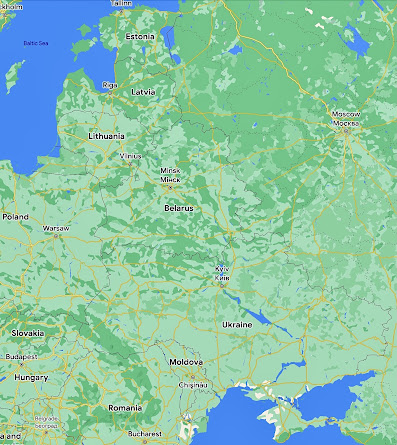
Instead of making his case in a manner that could be discussed…somewhere…like the Security Council (which would be better than nothing), Putin sets forth a mixture of selectively skewed Russo-centric history, obtuse pan-Slavic mysticism, and the most obviously chaotic elements of Western society in its present crisis, and declares Russia the last hope of civilization which is under siege from the evil and manipulative West. Russia is the real victim. Russia also has a right to annex Eastern Ukrainian territory and a duty to subjugate all of Ukraine under the umbrella of Greater Russia—to save it from the corruption of Europe and the West. Or the talk switches to geopolitical spheres of influence, multipolarity, excessive Western expansion via NATO, etc. etc. etc.
Putin pulls on various levers, depending on his audience, in order to rationalize Russia’s aggression by claiming that Russia is really defending itself. “Flipping” the conflict in this way allows him to present to his own people (as propaganda)—as well as the non-Western world, which looks at all this with its own concerns and/or opportunism—an alternative narrative claiming that the West and “its Ukrainian lackeys” are the ones who are the aggressors, threatening to destroy Russia and rule the world. Here Putin draws once again on the remarkably resilient KGB propaganda playbook, using this “threat to Russia’s existence” as a pretext to make dire warnings about the possible use of nuclear weapons.
The West, and indeed the whole world, cannot ignore these warnings. Still the Ukrainian people need to defend themselves, and the West wants to “help” but doesn’t want a “world war,” so it continues to “play the game” of using the power of money to blockade Russia’s economy and to send technological devices to make its contribution to the shooting fight. The strategy is to oppose Russia’s aggression with as little risk as possible. But it may be too late to avoid risks. The world may already be at the mercy of unfolding events.
Other nations besides Ukraine are uncomfortably physically close to these events. NATO seems to have a new sense of common purpose, though it’s hard to predict how long it will last, and whether the next election cycles will change the postures of its core member states. But the most zealous members of NATO today are the relatively recent members from Eastern Europe—especially Poland and the Baltic States—who have eight centuries of experience in dealing with Moscow and who share a border with Russia. They have no illusions about the ex-KGB agent who currently occupies the bizarre throne of the New Muscovite-Russian-wannabe-Empire. And they are smart enough to realize that there is no "instant democracy" waiting to spring into existence in Russia if (when?) Tsar Vladimir is overthrown. If Putin has viable rivals, they are rivals to the throne. They will not change the trajectory of current Russian ambitions, and they may be even more ideological and more reckless.
Poland, Latvia, Lithuania, and Estonia already feel the heat from the breath of a monstrous emerging “world war.” They are not the only ones.
Nobody sees where it all might end. It would be cynical to claim that the military-industrial complex—always a reliable engine for economic stimulus in a country like the United States—might not mind a long and aimless war that enables them to manufacture weapons and make gobs of money from a government that always seems to have plenty on hand for such “necessities.” Where the government gets that money is a question that probably has answers too obtuse for it to explain to “us [we] the people.” Meanwhile, Russia might also be planning to outlast its opponents in a long stalemate… while continuing to say that they want to negotiate peace on their terms. We have already noted that their terms are less than ideal, but in reality the issues are much deeper than they are willing to admit.
Russia claims that it wants to be a regional power in a multipolar world; it wants to be “the center” of a wider realm that it envisions as its historic patrimony and responsibility (never mind that Russia’s “special military operation” to “liberate” Ukraine, or parts of Ukraine, has been carried out in an outrageously irresponsible manner). Neither history nor the present international situation, however, support Russia’s ambitions. Whatever may be the sins and machinations and schemes of powerful forces from the West, they do not warrant Russia indulging in a fresh grasp for power, particularly in the very places that have suffered under the iron grip of a prior Kremlin government until a little more than 30 years ago—a government that has never been held accountable for heinous crimes against the peoples it now wants to rule again.
Russia has a very particular problem. Moscow has a problem. The Kremlin has a problem. In the days when he was still facing down the monolithic Soviet Union, the great Alexander Solzhenitsyn saw the problem clearly (when he returned to post-Soviet Russia in the 1990s, he became somewhat confused [they were exceptionally confusing times for Russia]—but it was as a dissident, against the Soviet Union and then in his critique of the decadent West, that Solzhenitsyn attained his historic stature). In 1973, Solzhenitsyn declared that the Russia he loved—which was then the heart of a decrepit-but-still-grasping Soviet Communist MegaState—needed to renounce power. Russia needed to be healed before it returned to the global stage. It needed, as a nation, to pass through a period of "repentance and self-limitation," a looking-inward to discover and foster its constructive identity.
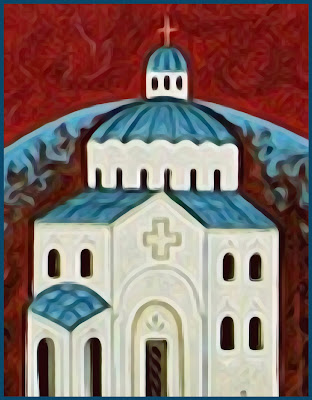
Repentance. Has anybody noticed that there has been no repentance for the crimes of the Soviet Union in the twentieth century? There are many reasons why the current world order is skewed, but it's worth noting that our international institutions are still based on the outcome of the Second World War. Our current agreements about international law, human rights, treaty-obligations, disaster relief, and a host of other cooperative efforts were born directly from the Grand Alliance of 1941-1945 that defeated Nazi totalitarianism and Imperial Japanese militarism, and then put on trial people who were perpetrators and collaborators in the immense violence carried out by these regimes. The intention was that people were going to be held accountable for war crimes and crimes against humanity. Even during the war, this alliance took to calling itself "The United Nations," and the institution that bears the same name today is an extension of what was born at that time.
One of these allies, however, was Stalin’s Soviet Union. Stalin was guilty of crimes against humanity on a scale approaching the level of Hitler. In 1932, he presided over an attempted genocide-by-forced-famine against the very people of Ukraine who today must once again fight for their right to exist. Stalin’s predecessors and successors perpetrated vast crimes as well, running a regime that ideologically subordinated the dignity of the human person and the real aspirations of communities and peoples to the pretenses of a totalitarian state. Russia was at the center of this state. We all now know the abhorrent truth about the Soviet Union. Yet Putin and his collaborators—having exchanged Soviet uniforms for Russian uniforms— play on their own people’s nostalgia for hegemonic power.
I don’t want Russia to be destroyed. I love Russia. Russia has its own deep human and Christian experience to share with the whole world. Russia has a mission in history. But the road ahead for the Russian people passes through penance and self-limitation, simplicity, love for the expansive lands already entrusted to them, and a humility in which they will find their real strength. Included in this is harmony and respect for their brother Slavic nations and the rest of the world. In these ways Russia will endure, even as the present world powers spend their energies on things that pass away.
But Russia will face catastrophe if its people choose to imitate the inhumanity of Stalin, thinking it might save them from the nihilism that surrounds them or the anxiety that feeds on their fears of irrelevance. If the present war becomes an extended global conflict or even a new “Cold War,” Russia will not be one of the powers that leads it. If Russia does not embrace a humble path, it will find itself humiliated by its new “limitless partner” to the south. If China props up Russia, it will do so on its own terms, as a mine for resources, a superhighway for its trade ambitions, and a passage to the new open ocean in the Arctic north.
The future can’t be predicted in detail, but in general it must grapple with the tensions and the unraveling of problems set in place by the past. I will have more reflections on this point and its relation to current-day events in another post coming soon. Stay tuned for that.

